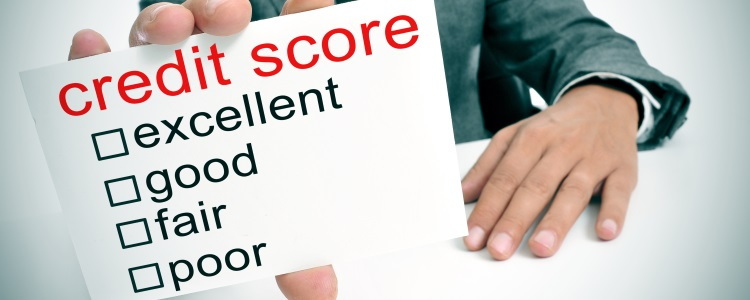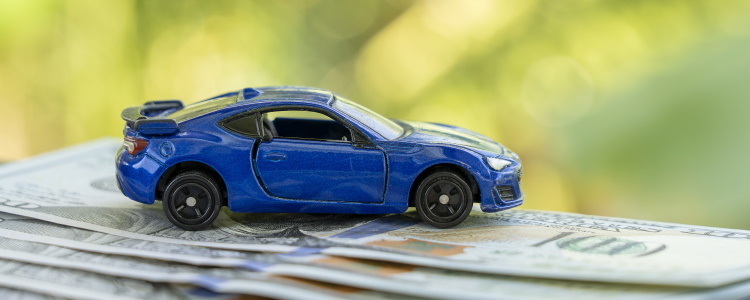With each passing year, new technology and generational demand see people leaning toward a preference to pay for everything with credit cards. But can you buy a car with a credit card? Unfortunately, in most cases, the answer is no.
Most auto dealerships won't allow you to buy a car with a credit card, regardless of your credit situation. Even among the small number of dealerships that'll let you pay with plastic, they often only allow you to put a small portion of the purchase on your credit card.
Many people think credit cards offer a great alternative to having cash on hand, or that they save them the headache of all the pesky paperwork involved in an auto loan. But this is simply not the case. Even though more and more dealers are accepting credit cards, it is often only for a small portion of your vehicle purchase, generally only up to $5,000.
Do Car Dealerships Accept Credit Cards?

In truth, buying a car with a credit card won't fly at most dealerships. It’s a rare occasion when they let you use a credit card for a car, and it is typically only done through a specific credit card/dealer program.
You will likely only be able to pay for a portion of your purchase with plastic if a dealer accepts it at all. This is typically because merchants must pay a transaction fee to the credit card company—usually between 1% and 4% percent—and most dealers are not willing to give up that profit margin.
Not only will it be hard to find a dealership that'll let you buy a car with a credit card, but it's likely not a smart thing to do money-wise. On average, credit cards have higher interest rates than auto loans, so you could be costing yourself money. If you’re dealing with poor credit, the last thing you need is credit card debt which can rack up high interest charges.
Traditionally, it is only a good idea to use your credit card to pay for a car if you have good credit and the money available to pay off your purchase. It can make sense to put the purchase—either in whole or in part—on your card if the reward outweighs the risk. For example, if you have a credit card with a zero percent APR or a rewards card that will earn you things like points, airline miles, or cash back.
The Perks of Buying a Car with a Credit Card
Paying with a credit card during a zero percent APR period can save you a bundle in interest charges on the purchase of your car, assuming you can pay it off in an appropriate amount of time. If you can't pay it off before interest charges kick in, you could wind up with more fees than you bargained for. This is due to the fact that credit card interest rates are usually much higher than those on auto loans.
If you are using a rewards card, you may be able to gain some nice perks for yourself, again, assuming you have the money to pay off the balance fairly quickly. For instance, some cards offer bonus points for certain dollar amounts spent within a certain amount of time. This could translate into hundreds of dollars in rewards.
Other cards offer cash back incentives for purchasing. Make sure the money is worth it though; a card that offers one percent cash back on every purchase is only earning you $50 if you charge $5,000.
Downsides of Buying a Car with a Credit Card
There are some instances where you definitely should not do something just because you can. Using a credit card to buy a car is one of them, especially if you have bad credit. Even if you find a dealership that will allow you to place the entire purchase price of a vehicle on a credit card, you could be costing yourself thousands overall.
Consider these three downsides to buying all or part of a car purchase with a credit card:
- Hurts Credit Utilization Ratio and Credit Score: Even charging part of a vehicle purchase to a credit card could cause your credit utilization ratio to skyrocket. Credit utilization is the amount of your credit card balances compared to their limits, and having a high ratio hurts your credit score.
- Credit Card Interest Rates are Higher: Regardless of your credit, the interest rate you can get on a credit card is usually higher than it is for a car loan. Credit cards typically carry an APR of between 12% and 25%, whereas auto loans currently range from about 0% to 12%, depending on your credit situation. Even if you fall into a subprime category, your auto loan interest rate—typically between 14% and 22% on average—will probably still be lower than your credit card rate. Paying with plastic, therefore, can cost you more than financing. There's usually not a good reason to do this, unless you have the cash to pay for the car on hand and are just trying to access credit card rewards, or you have a 0% APR period on your credit card and can pay off the balance before it ends.
- Trouble When the Worst Occurs: If you buy with a credit card and your car is totaled in an accident or stolen, you'll likely be on the hook for more money than it's worth. When this happens, your insurance company covers what the car is worth at that time, which could be less than what you charged to your credit card due to depreciation.
The Bottom Line
Buying a car with a credit card usually isn't possible at most dealerships. Even when you can, you likely won't be able to charge the entire car purchase, and that's typically not a smart financial move anyway.
If you have bad credit, you're better off pursuing an auto loan from a special finance dealership. You can get back on the road and rebuild your credit through on-time loan payments.

















